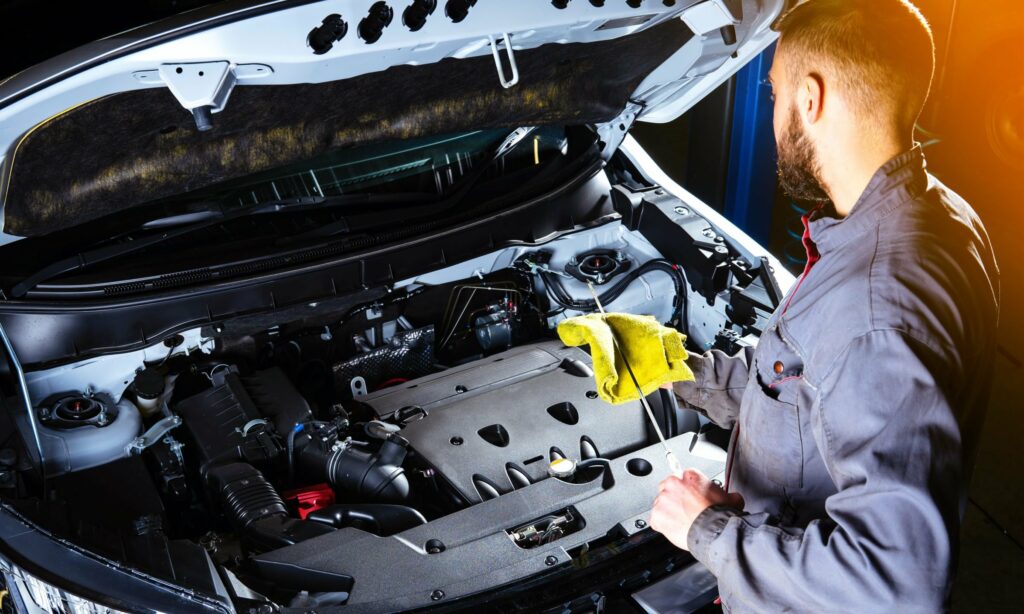
The Art of Timing: How Long Can You Delay a Car Service?
Owning a car is about having a comfortable means of transportation. However, It is also about taking responsibility for regular maintenance and servicing to keep it in its best condition. However, life often throws unexpected challenges our way, leaving us wondering how long we can you delay a car service without compromising the vehicle’s health. Where is the balance between convenience and maintaining your car’s longevity? There are various factors to take into account when we are talking about maintaining the automobile.
Manufacturer’s Recommendations: Setting the Foundation
When it comes to car servicing, the manufacturer’s recommendations act as a crucial foundation. As usual, Manufacturers do deep research and testing to ensure optimal performance, reliability and safety for your automobile. Hence, they create those guidelines considering the results of such research. Familiarizing yourself with your car’s recommended service intervals is the first step in determining how long you can delay a car service without risking potential issues.
Maintenance Schedule – What Is It And Why Do I Need It?
The manufacturer’s maintenance schedule typically covers various tasks such as oil changes, filter replacements, fluid checks, tire rotations, and inspections. These tasks are usually organized based on mileage or time intervals, whichever comes first. For instance, a common recommendation might be an oil change every 5,000 miles or six months, whichever occurs first.
How Long Can you Delay A Car Service? Importance of Following the Guidelines

It may be tempting to postpone or ignore recommended services. However. it’s important to understand that following these guidelines is worthwhile. Regular maintenance helps keep your automobile in optimal condition, ensures proper functioning of major components, and reduces the risk of potential malfunctioning. Ignoring manufacturer recommendations for an extended period can lead to costly repairs or even permanent damage to your vehicle.
Adapting to Your Unique Driving Conditions
Needless to say, manufacturer’s recommendations are major thing but it’s important to consider your specific driving conditions to determine the ideal service intervals for your auto. Driving habits and the environment in which you use your automobile can significantly impact its maintenance needs.
City Driving vs Highway Commutes
If your car is primarily driven in a city where stop-and-go traffic is common, it may experience more wear and tear on certain components, such as brakes, suspension, and tires. In such cases, adhering strictly to the manufacturer’s recommendations might be advisable. On the other hand, if you primarily use your vehicle for long highway commutes, where the engine runs consistently at a steady speed, you may have a little more leeway in extending service intervals.
Severe Weather and Off-Road Conditions
If you frequently encounter severe weather conditions, such as extreme heat or cold, or if you frequently drive on unpaved or rough roads, your car may require more frequent servicing. These conditions can put additional strain on various components, necessitating closer attention to maintenance.
Visual Inspections: A Key to Proactive Maintenance
Performing regular visual inspections can provide valuable insights into the condition of your car. By keeping an eye on certain aspects, you can identify potential issues early on, potentially extending the time between services. Here are some areas to focus on during visual inspections:
Consultation with a Trusted Mechanic: Expert Guidance
When you find yourself uncertain about the timing of your car service, seeking advice from a trusted mechanic is a wise decision. Mechanics possess the expertise to assess your vehicle’s condition accurately and provide personalized advice based on your unique circumstances.
Factors to Discuss with Your Mechanic

During the consultation, consider discussing the following factors:
- Your driving habits and typical driving conditions
- Any specific symptoms or concerns you have noticed
- The age and mileage of your vehicle
- Previous maintenance history and service records
By sharing this information, you allow the mechanic to gain a comprehensive understanding of your car’s needs and offer guidance on the ideal service intervals for your specific situation.
Balancing Convenience and Long-Term Cost
While it may be tempting to delay a car service for convenience or cost-saving reasons, it’s important to strike a balance that ensures the long-term health and reliability of your vehicle. You Should know how long you can delay a car service. Neglecting necessary maintenance can lead to more significant issues down the line, resulting in expensive repairs or even premature vehicle replacement.
Interested How Long You Can Delay A Car Service? Importance of Regular Servicing
Scheduling regular services within a reasonable timeframe is crucial. Follow the manufacturer’s recommendations and you spot potential problems earlier than it become more serious breakdown.
Mileage As The Essential Element Of The Maintenance
A mileage blocker is a device that prevents a car’s mileage counter from running while it is moving. The mileage cannot be tracked since it doesn’t save any data in the control units during the operation. It was developed by a German team only for testing and tweaking reasons, and it has a number of benefits over other products on the market. The mileage blocker uses highly advanced and innovative technologies to make the product work flawlessly.
The Final Remark
How long you can delay a car service? – It’s not an easy question, it means you should think about multiple factors at the same time. Consider everything, starting from manufacturer’s recommendations, your driving conditions and habits, regular visual inspections, and guidance from trusted mechanics. Balancing convenience and long-term cost is key to maintaining your vehicle’s health and reliability. Regular servicing almost guarantees that your car continues to serve you well. What’s more important, you have guaranteed peace of mind on the road.




